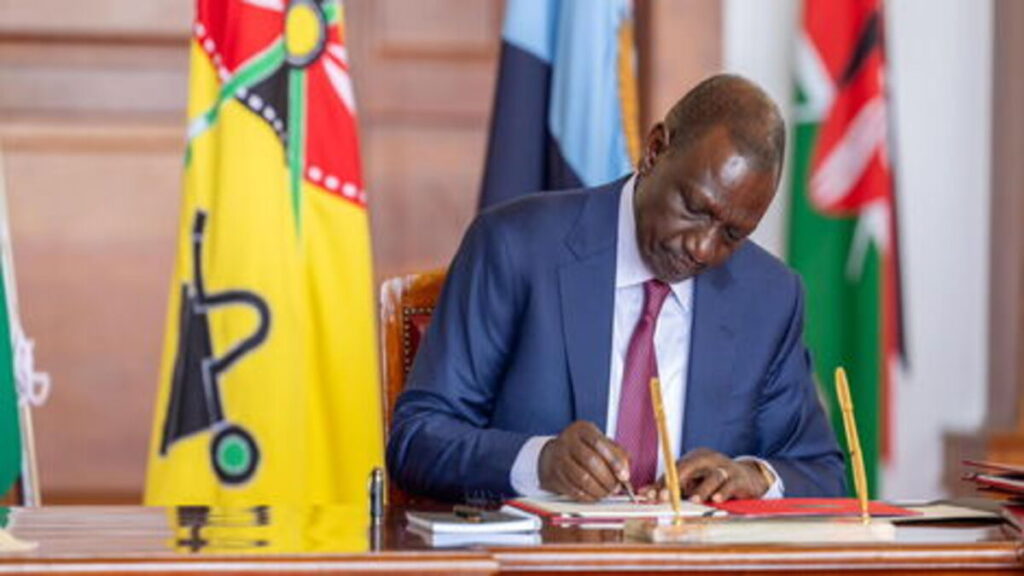President William Ruto has signed a groundbreaking Sugar Bill into law, heralding a comprehensive overhaul of Kenya’s struggling sugar industry. The legislation, signed on November 1, 2024, introduces sweeping reforms designed to revitalise a sector that has long been plagued by inefficiencies and economic challenges.

President Ruto Signs A Bill Into Law At State House, Nairobi
The new law establishes two critical regulatory bodies: the Kenya Sugar Board (KSB) and the Kenya Sugar Research and Training Institute (KSRTI). These institutions are tasked with fundamental transformations in industry oversight, research, and development. Comprising 14 members representing various stakeholders, the KSB will now have expansive powers to regulate pricing, license mills, and conduct comprehensive market surveillance.
Central to the reforms is the introduction of a mandatory Sugar Development Levy, which will be applied to both domestic and imported sugar. Set at 4% of the value for domestic sugar and 4% of the Cost Insurance Freight (CIF) value for imports, the levy represents a strategic funding mechanism designed to address systemic challenges within the sector.
“These reforms are not merely legislative changes, but a lifeline for our sugarcane farmers and the entire agricultural ecosystem,” President Ruto stated during the bill signing ceremony. “We are creating a sustainable framework that will stimulate growth, enhance efficiency, and ensure the long-term viability of our sugar industry.”
The levy’s allocation is meticulously structured to benefit multiple aspects of the sugar value chain. Forty percent will be directed towards enhancing cane productivity, while 30% is earmarked for factory development and rehabilitation. An additional 15% will support infrastructure in sugarcane-producing regions, with another 15% dedicated to research and training at the KSRTI.
Stakeholders have largely welcomed the reforms. James Ochola, a representative of the Kenya National Farmers’ Union, described the legislation as “a critical turning point” for an industry that has struggled with declining productivity and outdated infrastructure.
The law aims to address several long-standing challenges, including inefficient milling processes, limited technological innovation, and inconsistent support for sugarcane farmers. By creating a structured funding mechanism and establishing robust regulatory frameworks, the government hopes to transform Kenya’s sugar sector into a more competitive and sustainable industry.
Economists and agricultural experts suggest that the reforms could potentially position Kenya as a significant player in the regional sugar market. The comprehensive approach—from research and training to infrastructure development—indicates a holistic strategy for industrial transformation.
As the new regulations come into effect, all eyes will be on the implementation process and the potential economic ripple effects across Kenya’s agricultural landscape. The sugar industry, historically a critical component of the country’s agricultural economy, now stands at the cusp of a potentially revolutionary transformation.